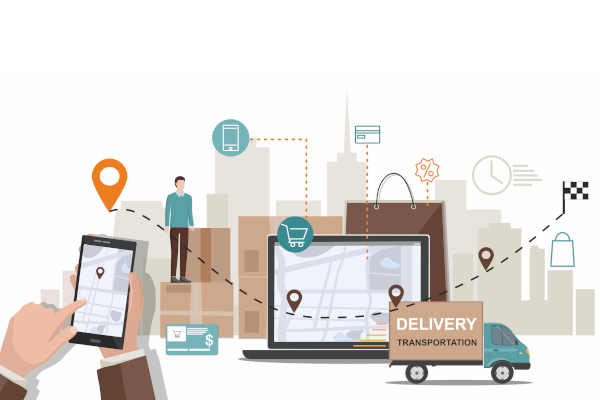The challenges of reverse logistics are many, but perhaps none is bigger than the challenge of overcoming the fragmentation of the industry. According to data from the Reverse Logistics Association (RLA), there are more than 5,000 companies in its database of companies involved in some way with reverse logistics. Tony Sciarrotta, executive director of the RLA, said the industry size is estimated to be more than $860 billion just on the B2C end. The total reverse logistics market is much larger, and according to a research study by Global Market Insights, will surpass $1.6 trillion by 2032.
That is why many companies are searching for solutions to bring more tentacles of the reverse logistics operation in-house.
In 2023, UPS acquired Happy Returns from PayPal. UPS also acquired Optoro, an all-in-one returns platform. Accenture announced in November it was acquiring OnProcess and Blue Yonder acquired Doddle in 2023. There were a number of other acquisitions by larger companies looking to create a more streamlined reverse logistics service.
“It’s a seriously fragmented industry, and it is looking for help,” Sciarrotta says. “Many companies handle pieces of reverse logistics, but few do it all.”
Tim Robinson, corporate vice president of Doddle, told Supply Chain Management Review at the recent National Retail Federation conference in New York that the acquisition of Doddle gives Blue Yonder more opportunity.
“We were building and developing ‘point’ solutions,” he says of Doddle, where he spent nearly 10 years as chief executive of the London-based e-commerce delivery platform company before the acquisition last year. “We and others in the space are only going to be so effective [on their own].”
Robinson says that reverse logistics is really “about the customer,” so the ability of Doddle and other companies like it to join forces with a Blue Yonder-size firm allows for the combination of point solutions and more comprehensive platforms, allowing data to be pushed into management systems (warehouse, logistics, inventory, etc.) in a more streamlined way.
“All of this data we have been gathering for the last 10 years … now we can put it together for interoperability,” he says. “Our last 12 months we’ve spent a lot of time improving that interoperability among solutions.”
Partnerships pay
Robinson says that previously, Doddle would be reliant on others for the parts of the reverse logistics supply chain it didn’t operate in. The acquisition by Blue Yonder allows it easier access to those areas.
“I think partnerships will still play a part,” he notes, before pointing out that going forward retailers will likely control the “consumer-facing tech” and then partner with companies like Blue Yonder on the supply side.
“The profitability of reverse logistics is primarily driven by scale and volume,” Robinson says. “In Many countries, retailers are dealing with different suppliers. The need for global solutions for cross-border returns is a big issue.”
Robinson says getting reliable data to the customer in the right format is a big issue. For items crossing borders, getting the right product code for customs is a challenge.
AT NRF, Doddle introduced a new returns management solution that offers a customizable front end for retailers and an orchestration engine to help monetize that return. The system also can track returns costs and compare those to the cost of the item to help identify the right solution for that item going forward. This helps retailers avoid the “one-size-fits-all return polices” many have today, Robinson says.
Co-sell opportunities
For carriers, shippers and brands, Robinson sees opportunity with a little collaboration.
“If you are a supply chain provider working for a big retailer, there is a huge opportunity to co-sell,” he says. “[Supply chain] businesses can help reduce costs for smaller and midsized retailers.
“I think there are supply chain businesses like couriers, 3PLs, shippers that could take a more active role in helping their retail customers with returns,” Robinson concludes.
SC
MR


More 3PL
- Orchestration: The Future of Supply Chain
- February and year-to-date U.S. import volume is solid, reports S&P Global Market Intelligence
- 2024 retail sales forecast calls for growth, says National Retail Federation
- ISM reports another month of services sector growth in February
- February manufacturing output declines, notes ISM
- How to Create Real Retailer-Brand Loyalty
- More 3PL
Latest Podcast

 Explore
Explore
Business Management News
- Few executives believe their supply chains can respond quickly to disruptions
- Technology’s role in mending supply chain fragility after recent disruptions
- Survey reveals strategies for addressing supply chain, logistics labor shortages
- How CPG brands can deliver on supplier diversity promises
- How S&OP provides the answer to in-demand products
- AI, virtual reality is bringing experiential learning into the modern age
- More Business Management
Latest Business Management Resources

Subscribe

Supply Chain Management Review delivers the best industry content.

Editors’ Picks




